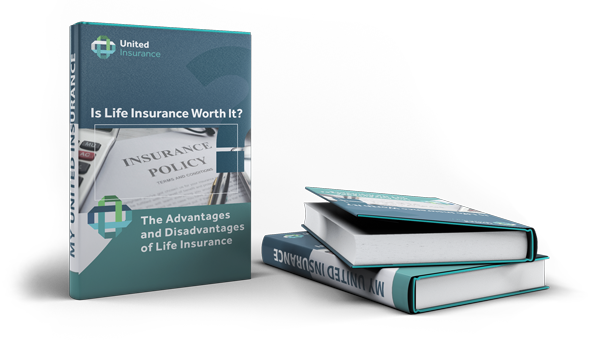
There are a lot of things that go into life insurance- what it is, how it works, the different types. It can be confusing to try and figure out why you should purchase a life insurance. We have put together this comprehensive guide. In it, you will learn everything you need to know about it so that you can make an informed decision about whether or not it is right for you and your family.
What is Life Insurance?
A life insurance policy provides a financial safety net for your family in the event of your death. Essentially, when you purchase a life insurance policy, you’re exchanging regular premium payments for a lump sum payment, also known as a death benefit, to your loved ones when you die. Usually, policyholders will select a policy based on their financial needs and goals.
There are generally two types of coverage: term life insurance, and permanent life insurance. With term life insurance, policyholders can select a specific number of years for coverage. With permanent life insurance, policyholders receive coverage for their entire lives.

How Does Life Insurance Work?
The death benefit is the main feature of a life insurance policy. This is the money that your loved ones will receive upon your death. The size of the death benefit will depend on a few factors, including your age, health, and the coverage amount. It’s important to keep in mind that the death benefit is only paid out if you die during the policy’s term.
There are a few different types of life insurance policies
Each with its own set of features and benefits. The most common types of life insurance policies are whole, universal, and term life insurance.
Whole life insurance is a type of permanent coverage that remains in force til death, as long as you continue to pay the premiums. Whole life insurance also has a cash value component, which means that it can be used as a savings or investment tool.
Universal life insurance is another type of permanent coverage, but with more flexible terms than whole life insurance. With universal, you can adjust your premiums and death benefit to fit your changing needs.
Term life insurance is a temporary type of coverage, which means it only remains in force for a specific term, or length of time. After the policy expires, you will no longer have coverage. Term is typically less expensive than permanent life insurance.
Who Needs Life Insurance?
If you have people depending on you financially, you should have some form of life insurance. While most people know they should protect their spouse or children financially, such protection is also needed when there are people, such as dependent parents, who would have to bear your debts after you die.
It helps protect your beneficiaries in the case of your death. Therefore, if someone in your life might be responsible for your funeral costs, or debt payments or would be financially crippled due to their reliance on your income, you may want to buy a life insurance policy to cover these costs.
For example, many people choose to get their first policy when they get married. This helps protect a spouse who depends on your income. If a married couple has children, they may want to provide for the child’s living expenses with a life insurance policy.
This coverage gets more expensive as you get older, so purchasing early can help you protect yourself in the future. Additionally, it can cover any funeral or other costs in the event of your untimely death. Business owners and investors may also want to purchase term life insurance to protect their business or personal debts. Life insurance may be included in a trust to protect both the policyholder and the beneficiaries from taxation.
How to Apply for Life Insurance
The first step to applying for life insurance is to decide how much coverage you will need. You can do this by evaluating how much you want your beneficiaries to have to cover their living expenses, funeral costs, and any debt payments. You should also consider how long you want to be covered.
Next, you’ll want to search for companies that you might want to purchase from. There are plenty of companies out there, so only consider working with companies with an A+ or A++ rating by A.M. Best. This will ensure that you are only working with the most financially sound companies.
Finally, you’ll be able to get quotes from these companies and decide which company you’d like to apply for coverage. Your approval might be contingent on your ability to pass a physical that includes blood testing.
How Are They Priced
Insurance company underwriters play a significant role in setting the price of life insurance policies. They determine if a policy would be profitable for the insurer. They consider if an applicant meets certain criteria to qualify for an insurance policy. From there, they establish the type of policy for which an applicant is eligible. Finally, they provide an outline of what the policy covers for the applicant’s unique circumstances. The upshot of an underwriter’s work influences the premiums to be charged.
Premiums are also affected by several other factors, such as:
- Term – Term comes in short- and long-term policies. Longer-term policies tend to cost more, while permanent policies typically cost more than term life insurance policies.
- Health – People in good health are likely to get the best rates. People who smoke have some of the worst health insurance rates due to the risk of cancer and heart disease.
- Age – Because older individuals are closer to death, it costs more to insure their lives. Life insurance costs less for someone in their 20s than it does for someone in their 40s, and so on.
- Company – The most reputable insurance providers are in a position to charge higher premiums than their financially weaker rivals. Thus, if you choose to work with a highly reputable company, it will likely cost you.
What Riders Are Good To Add?
When you are looking at these policies, you’ll want to consider adding some riders. Riders are additional features that you can add to your life insurance policy for an extra cost. Some of the most common and useful riders include:
Accidental Death Benefit – This rider pays out a death benefit if the policyholder dies as the result of an accident.
Waiver of Premium – This rider allows you to stop making premium payments if you become disabled and are unable to work.
Long-Term Care Benefit – This rider provides coverage for long-term care expenses, such as in-home care or nursing home costs.
These are just a few of the riders that you might want to add to your policy. Be sure to talk to your agent about which riders would be most beneficial for you and your family.
What If Someone Has a Lot of Health Issues?
If you have a lot of health issues, you might not be able to get coverage. If you can get coverage, your premiums will likely be higher than someone who is in good health. Some companies specialize in providing benefits for people with health issues. These companies are called high-risk life insurance companies.
If you have health issues and are looking for life insurance, be sure to shop around and compare rates from different companies. You might be surprised at how much you can save by working with a high-risk life insurance company.

What If I Can’t Afford It?
If you can’t afford life insurance, there are a few things you can do. You can try to get a policy with a lower death benefit. You can also try to get a term policy instead of a whole life insurance policy. Term life insurance policies are usually cheaper than whole life insurance policies.
You can also look into getting coverage through your employer. Some employers offer life insurance coverage as a benefit to their employees. If you have these benefits through your employer, be sure to ask about the details of the policy. You might be able to convert your policy to an individual policy if you leave your job.
If you still can’t afford life insurance, there are some other options you can consider, such as burial insurance or final expense. These types of policies are designed to cover the costs of your funeral and other end-of-life expenses.
Give us a call today to discuss your options. We are always here to help. Thanks for reading.
